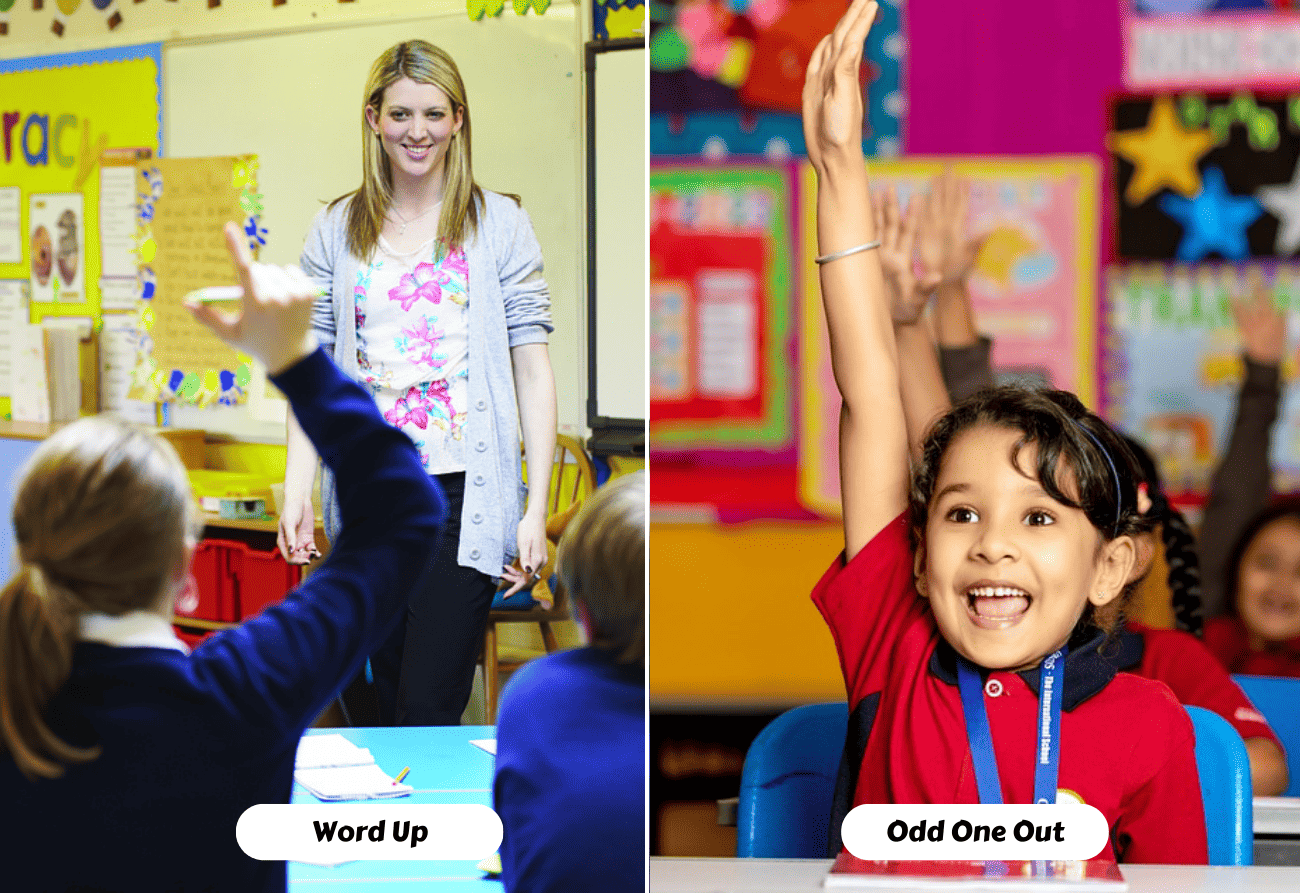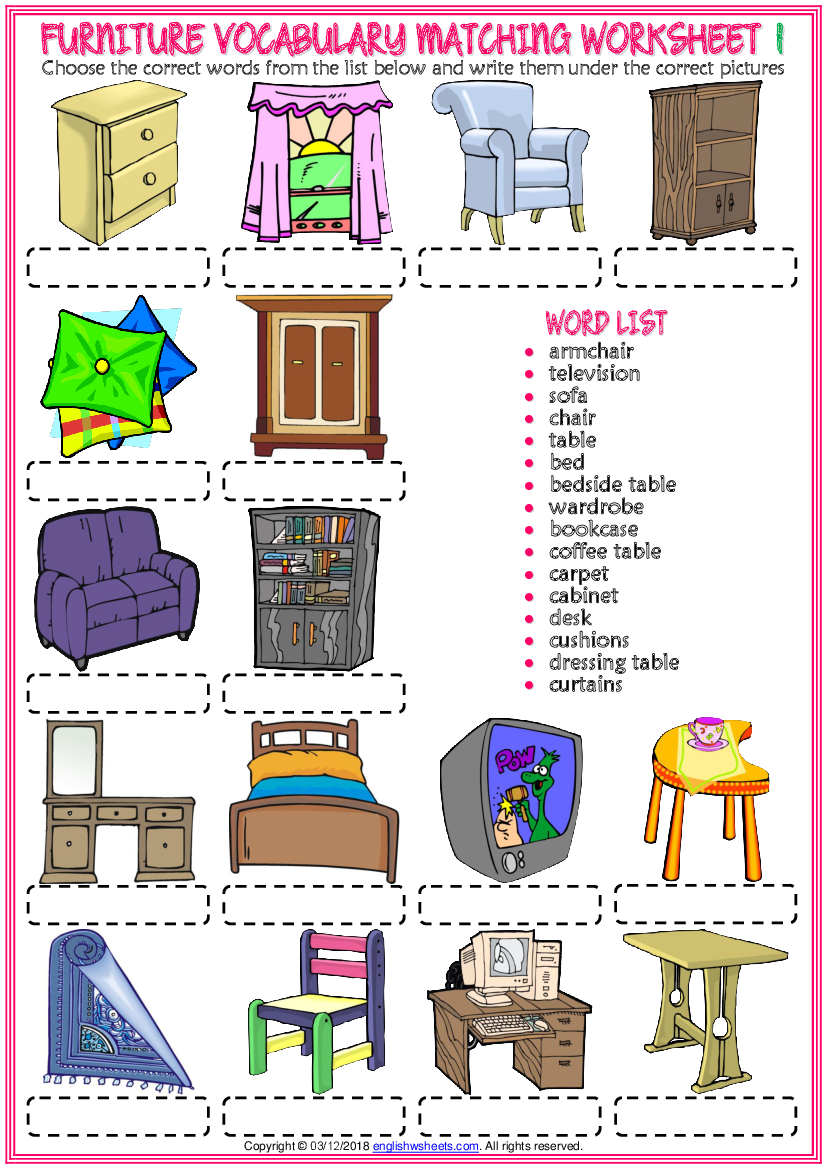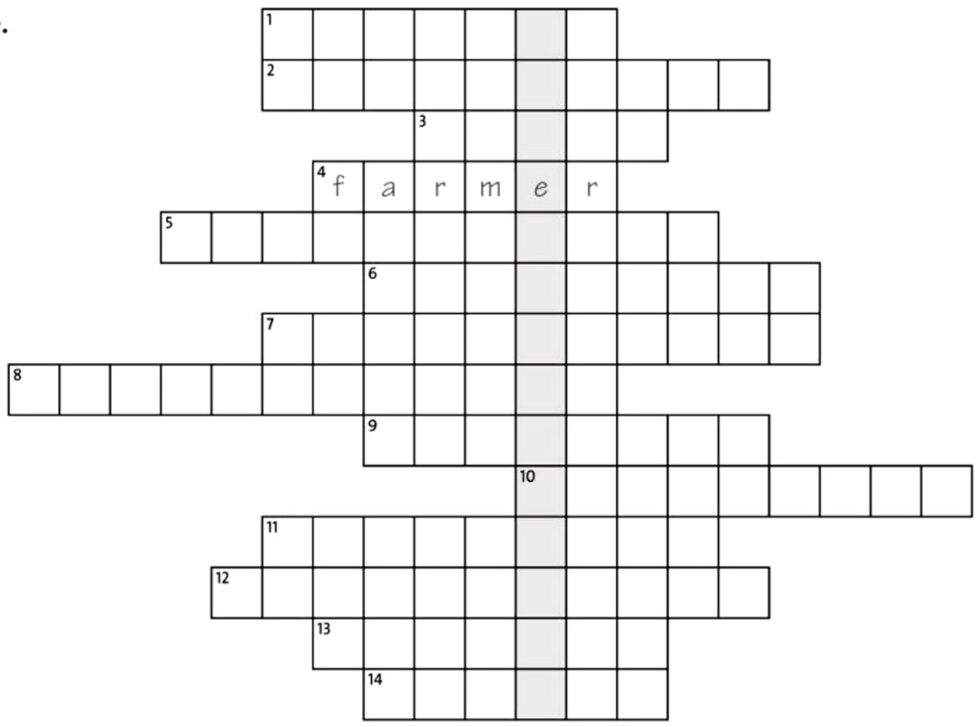
vocabulary Vocabulary, Esl vocabulary, English lessons
6. Word Families. Level: Intermediate, Advanced In this exercise, you're going to be given a word, and you have to write as many words related to it as you can. For example, if the word is bake (to cook food in an oven), you can write baking (gerund form of "bake") , baked (past tense of "bake"), baker (a person who bakes), bakery (a place that sells baked goods), overbake (bake too.

Free ESL, EFL printable worksheets and handouts Learn english, Word formation, Learn english words
1. Roll the Dice Students choose a word (from a list, from the board, from a card) and the first student rolls a dice. The student who rolls does one of the following based on the roll: 1 = Define the word. 2 = Use it in a sentence. 3 = Say a synonym for the word. 4 = Say an antonym for the word.

Vocabulary Exercise pictur… English ESL worksheets pdf & doc
A1 Elementary Level A2 Pre-Intermediate Level (Flyers) A2 Pre-Intermediate Level (A2 Key) Vocabulary Exercises for Independent English Learners B1 Intermediate Level B2 Upper Intermediate Level Vocabulary Exercises for Proficient English Learners C1 Advanced Level Check out our puzzles, activities and games available:

Various vocabulary exercises use of english type to practice vocabulary concerning TRAVEL
1. Write vocabulary short stories Using vocabulary words in writing shows mastery. Challenge your students to use all of their vocabulary words in an original short story. Allow students to pair up and share their stories with a partner. Learn more: Lucky Little Learners 2. Put your students in the "hot seat" Divide your class into two teams.

Vocabulary exercises translatio… English ESL worksheets pdf & doc
IDEA #1: Semantic Maps In this activity, the teacher chooses a word and displays it for the class on a whiteboard, etc. Students read the word and then think of words that come to mind when they see that word (this is awesome because it activates prior learning).

Vocabulary Matching Worksheet In the bedroom Vocabulary worksheets, Vocabulary, English
Building a large "word bank" is one of the best ways to help children with reading comprehension. Young readers use knowledge about words to help them make sense of what they're reading. The more words a reader knows, the more they are able to comprehend what they're reading or listening to. Home Literacy at Home Reading 101: A Guide for Parents

Fun Vocabulary Activities for High School Synonym Vocabulary activities, Fun vocabulary
1. Vocabulary Wheels Students will love this engaging vocabulary activity. They can work individually or in pairs or groups to create one or two wheels to connect the vocabulary words with their definitions. Teachers can adapt this accurate matching activity for any age group to teach effective vocabulary in their classrooms.

Standard 2 English Vocabulary Exercises English vocabulary exercises, Vocabulary exercises
20 Vocabulary Lesson Ideas 1. Anything Goes (Richek & McTague, 2008) This is used as a quick review of words that moves students from hesitation to rapid use. Teacher presents students with a list of words (board, overhead or word wall). Teacher or student points to a word and asks: What part of speech is _______? What is the definition of _______?

20 Vibrant VocabularyBuilding Activities Teaching Expertise
Activities Beginner A1 Vocabulary activities Have you tried these practical activities to help students with vocabulary learning? There's something for all ages and levels. Spot the vocabulary Collocation pelmanism Quick revision games Word association recitation The revision box The comparison game Stop the bus Adopt a word Lexical threads

SOLUTION 647 intermediate vocabulary test 2 esl vocabulary exercises com
4. "HEADS UP" GAME. "Heads Up" is one of the best vocabulary games, hands down. 🙂. If you want a low-prep but high-impact activity, try this fun spinoff of Ellen DeGeneres' popular "Heads Up" game. All you need is a set of cards with your vocabulary words (one per card), but the cards don't have to be fancy.

Illnesses Vocabulary For Kids / Health Problems, Illnesses, Ailments Esl Printable
A really fun way to review vocabulary at the end of the lesson or the week is to mix up the letters of each word. Write a word or words on the board. The students then race to identify the vocabulary.

English Vocabulary Exercises for A2 Jobs English Practice Online
Here are five engaging vocabulary exercises that are quick enough to use at any time in your classroom. 1. Awesome Adjectival Assessment. This adjectival activity will help your students differentiate between vocabulary words with different shades of meaning and teach them how to select the best word for each purpose.

Pin on Työ
1. Research shows that mind maps are brain-based learning activities. 2. Thinking symbolically about a word helps students to deepen their understanding of it. 3. Mind maps require students to engage with a word meaningfully from different angles for an extended period of time. 4.

Vocabulary 2 exercises 1 (international version) Vocabulary worksheets, Vocabulary
1. Vocabulary Quilts Patch together colorful 'quilts' to support vocabulary development! By middle school, your kiddos should understand what the overall project is going to look like and will likely spend a bit more time creating the definitions, synonyms, antonyms, and pictures that relate to their vocabulary word! Learn More: Instagram 2.

Free ESL, EFL printable worksheets and handouts Word formation, English language learning
The gamified activity allows for photos or text as the answer option. 6. Get students involved in choosing the vocabulary words they want to learn. Let students select fascinating words for a book the class reads aloud or from their independent reading time.

Grammar and vocabulary exercises for… English ESL worksheets pdf & doc
20 Vibrant Vocabulary-Building Activities. January 31, 2023 // by Christina Cunningham. Having a robust vocabulary is an essential element for children to successfully communicate and, eventually, read. A large oral vocabulary is necessary for children to be able to recognize the words they know in print and to comprehend the passages they read.